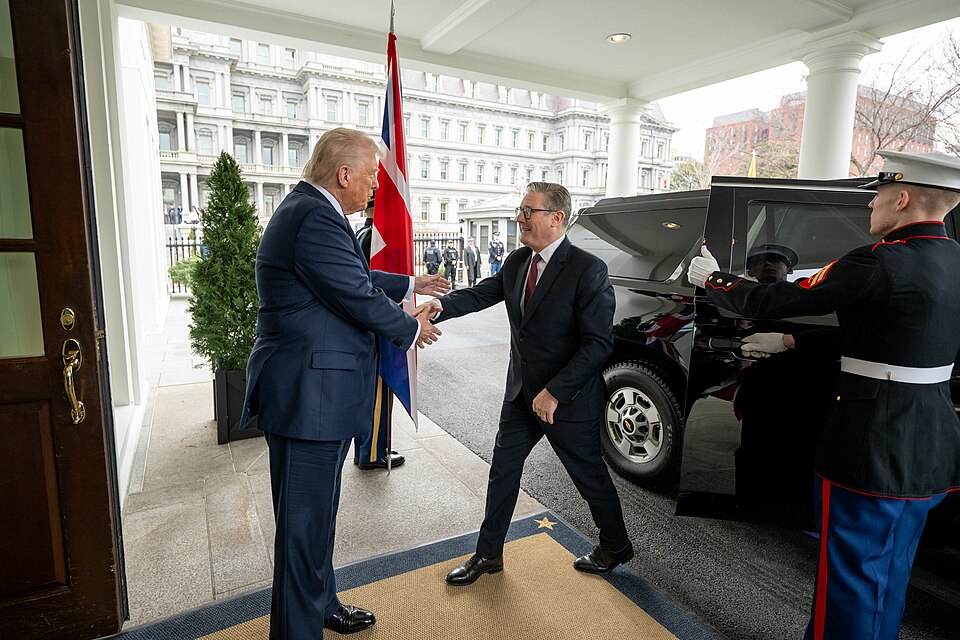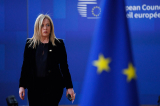
U.S. President Donald Trump and British Prime Minister Keir Starmer announced Monday that the two countries have signed a new trade agreement easing tariffs on U.K. auto and aerospace
imports. However, talks are still ongoing over how to address tariffs on British steel.
The announcement came during the Group of Seven (G7) summit in the Canadian Rockies. Trump, displaying the agreement to reporters, mistakenly referred to it as a deal with the European Union before correcting himself. Despite the rocky presentation, he called it “a fair deal for both” that would create “a lot of jobs, a lot of income.”
“We just signed it, and it's done,” Trump declared.
Starmer hailed the agreement as “a very good day for both our countries, a real sign of strength.”
The deal marks progress amid Trump’s broader tariff threats, which have rattled global markets and raised fears of a trade war. Although the administration has walked back some proposed tariffs, it continues to pursue new trade agreements — with few finalized so far.
According to Trump, the U.K. is "very well protected" from U.S. tariffs, adding, “You know why? Because I like them.”
The finalized agreement follows a May announcement of a framework deal. Monday’s signing locks in reduced tariffs on U.K. automobiles and aerospace products, but steel and aluminum remain unresolved.
Under the deal:
- U.S. import tariffs on British autos will drop from 27.5% to 10% by month’s end, for up to 100,000 vehicles per year.
- Tariffs on U.K. aerospace goods are removed entirely, lifting a 10% levy previously applied to other countries.
Britain’s Business and Trade Secretary Jonathan Reynolds said the deal protects key U.K. sectors. Mike Hawes, head of the Society of Motor Manufacturers and Traders, called it “great news for the U.K. automotive industry.”
However, the agreement falls short on steel. Although originally intended to reduce tariffs to zero, negotiations continue. Britain’s steel industry, facing high production costs and competition from China, has seen output fall by 80% since the 1960s.
Earlier this month, Trump unexpectedly doubled global metals tariffs to 50%, prompting concern in the U.K. He later clarified that British steel would remain subject to the previous 25% rate — for now.
The White House later stated that Commerce Secretary Howard Lutnick will determine a quota for British steel and aluminum imports exempt from tariffs. The British government maintains that a 0% tariff for core steel products is still the goal.
Trump’s executive order emphasized the importance of secure supply chains, especially in relation to China. The U.K. agreed to align its exports with U.S. security requirements for steel and aluminum.
The deal also includes limited agreements on agriculture. American farmers can now export up to 13,000 metric tons of beef to the U.K. annually, and British farmers gain reciprocal access — although the U.K. ban on hormone-treated beef remains in place.
No final agreement has been reached on pharmaceutical trade, with both sides saying further work is needed. Photo by The White House, Wikimedia commons.









































